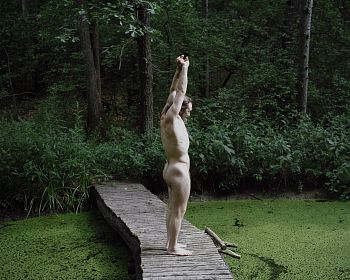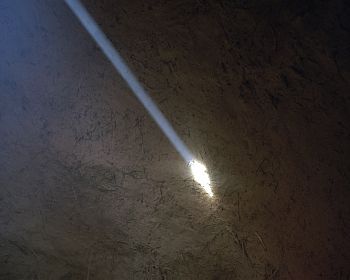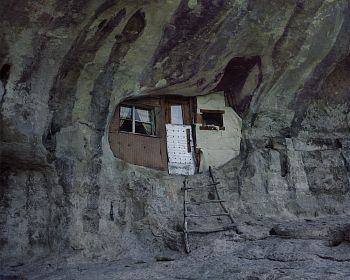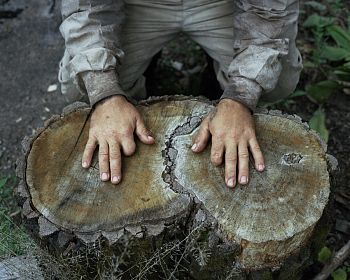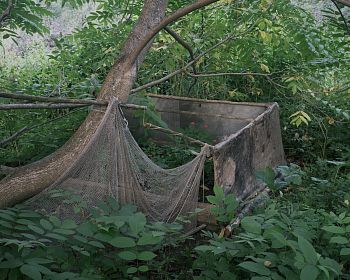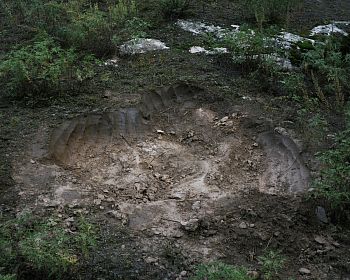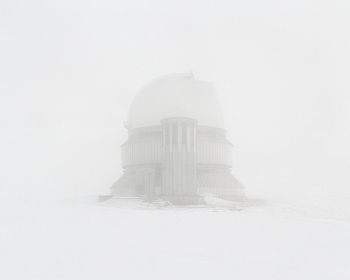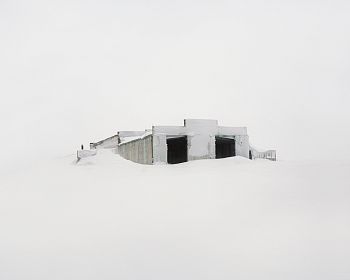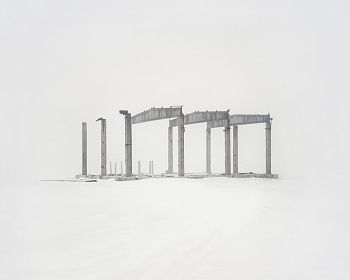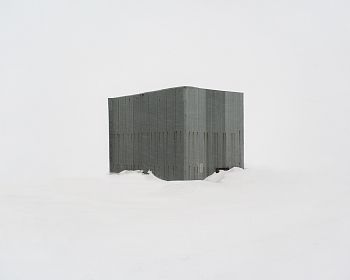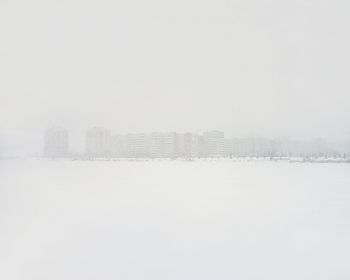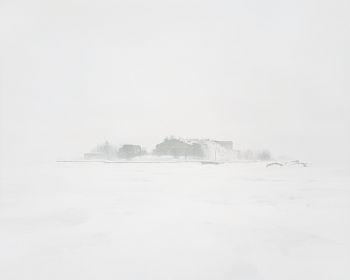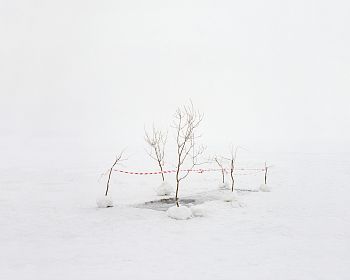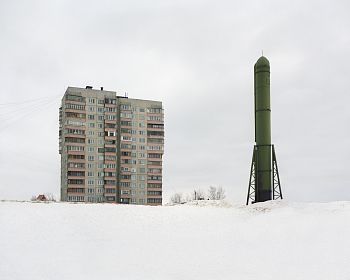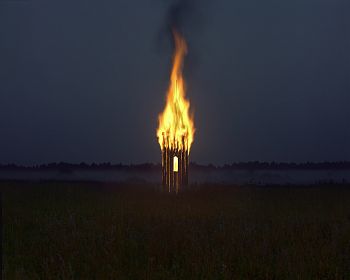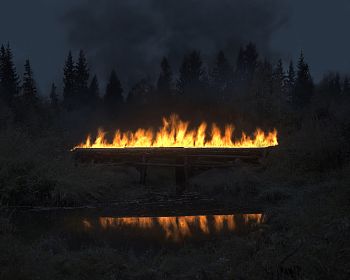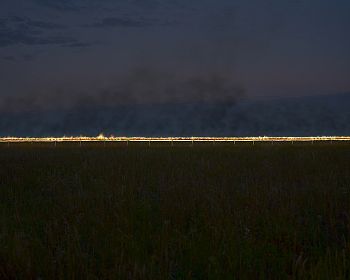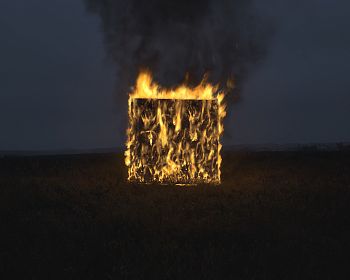
All of Danila Tkachenko's projects carry a social and political message which the commentators often forget about: either because of the balanced design of these projects, or because of their scandalous (and unpleasant) nature.
Beautiful pictures with the longing of endless monochrome space. Strange white mechanisms amidst silence, or strange futuristic monuments dedicated to the cosmos, as it seemed in the romantic sixties. Ontology, the memory of the great unfulfilled. This is not what "actually happened", it is the work of thought of the thinking viewer, his self-reflection.
And now a new project: the bones of the once-living and quite heroic men, killed in war or shot; disappeared for decades, mixed with the earth, but found recently by search expeditions. The bones are photographed in the studio before being buried. Erased from the face of the Earth, the dead seem to find their voice again, to be remembered and seen. A kind of Mexican carnival, during which it is possible and necessary to communicate with our ancestors. Cursed and slain, but returned, friends, emerging in bright spots from the black earth.
This is about memory finding its way back to us through dense oblivion, expressed in such a way as to touch the most indifferent viewer (and cause a storm of criticism, perhaps).
The problem of memory in Russia is critical: both the material and generational. It was customary to forget. It was accepted that adults do not tell children too much, in case something would happen. Not to have memory beyond three generations is the norm. Not to have items that belonged to great-great ancestors is also the norm. My grandfather never once told that he went to war from prison – only the eldest son, my mother's oldest brother, knew this and told the rest of the family well into his old age. Because it's dangerous. Because there will be problems.
Private memory is suppressed, and what is supposed to be remembered (and worshipped) is monopolized by power, replicated and rolled into cliches; the falsification of history has become both a rubber stamp and an accusation. And it turns out that the power in the political and media sense commands both life and death – you can resurrect the 28 panfilovites who never existed, and they will become more real for millions of people than the other real soldiers who died heroically. Those you don't have to resurrect and can forget.
This is normal, because the past is a political construct, in a major form it is always subjected to the ruling power. But there is also good news: at the same time it is a garden of diverging paths: everyone is free to see and remember some part of their history, and no one can be forced to follow someone else's path. The work of creating your own memory turns into an act of active resistance. There is a private appropriation of the past. You can build a dialogue with memory, with material evidence.
Tkachenko raises not the cosmist question of the total resurrection of the dead, the past is dead, but the question of proactive memory, of the self-reflection that creates and comes to a conclusion. For example, it is impossible, and it is not necessary to resurrect the second best monuments of architecture that have been decaying for a hundred years across the country. Scattered on the long-ruined estates of the Church, these structures are devoid of content and even their very form is beautiful mainly as a dreamy memory, but you can make them shine brightly again, draw attention to them, create a winning portfolio, building a temporary supremacist context around them ( "Monuments" series).
So the bones in the Heroes series is a sacred subject in itself, which the author treats with respect, but they are telling a story which is not relevant to them, but rather relevant for the author (and viewers).
V. Dudchenko
Danila Tkachenko was born in Moscow in 1989. In 2014 he graduated from the Rodchenko Moscow School of Photography and Multimedia, department of documentary photography. In the same year he became the winner of the World Press Photo 2014 competition with the project “Escape” which he worked on for 3 years. In 2015 he finished the project “Restricted Areas” which has received a number of international awards including European Publishers Award For Photography, Burn Magazine grant, and included in the Dutch magazine Foam Talents. In 2016 completed series “Lost Horizon”, in 2017 published projects “Motherland” and “Monuments” which have caused a wide public response. In 2018 by the invitation of Qatar Museums Danila realized the series “Oasis”. In 2019 completed series “Heroes” and “Acid”. Tkachenko’s photos were published in such magazines as BBC Culture, The Guardian, IMA Magazine, GUP Magazine, British Journal of Photography, National Geographic.
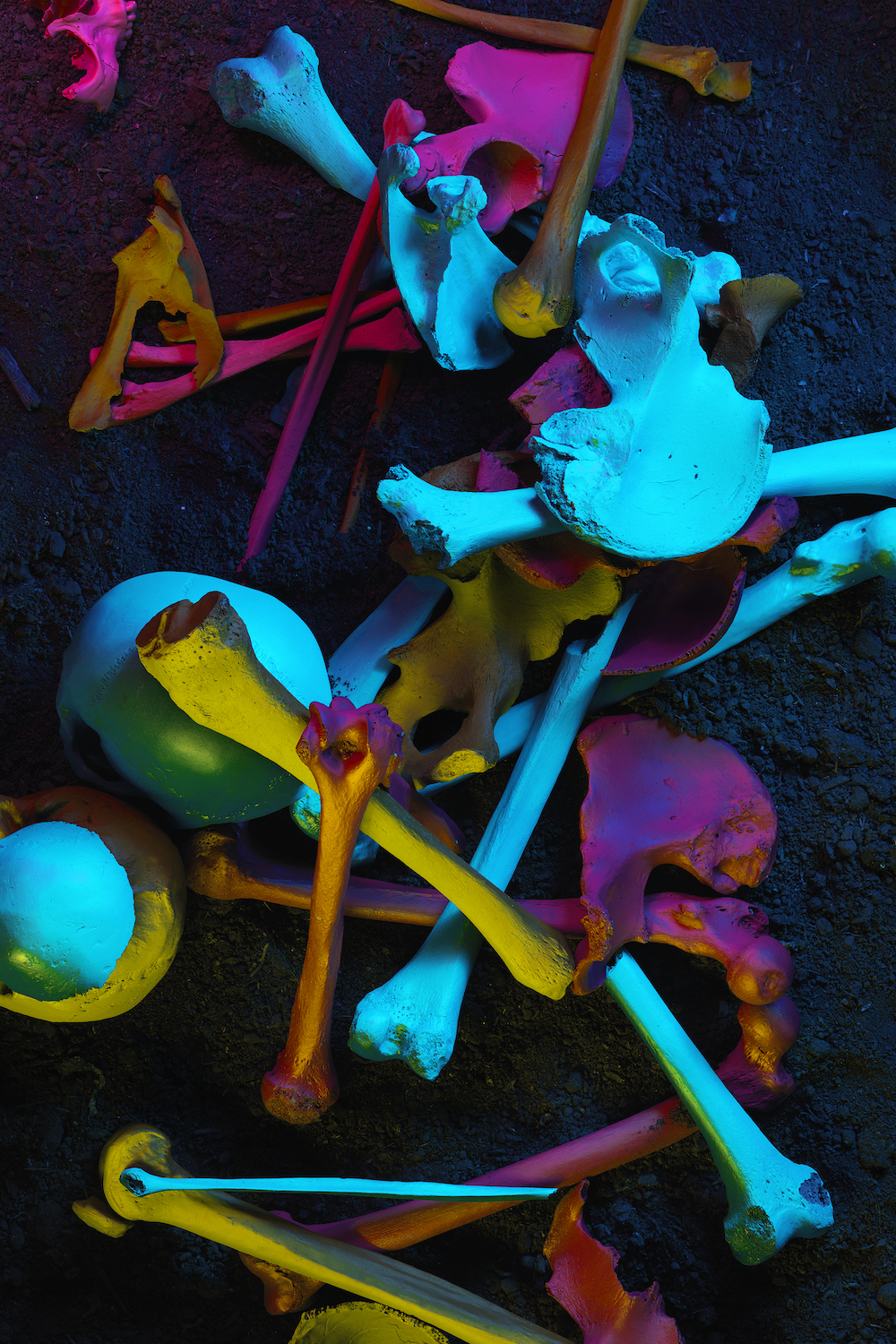 75
50
75
50
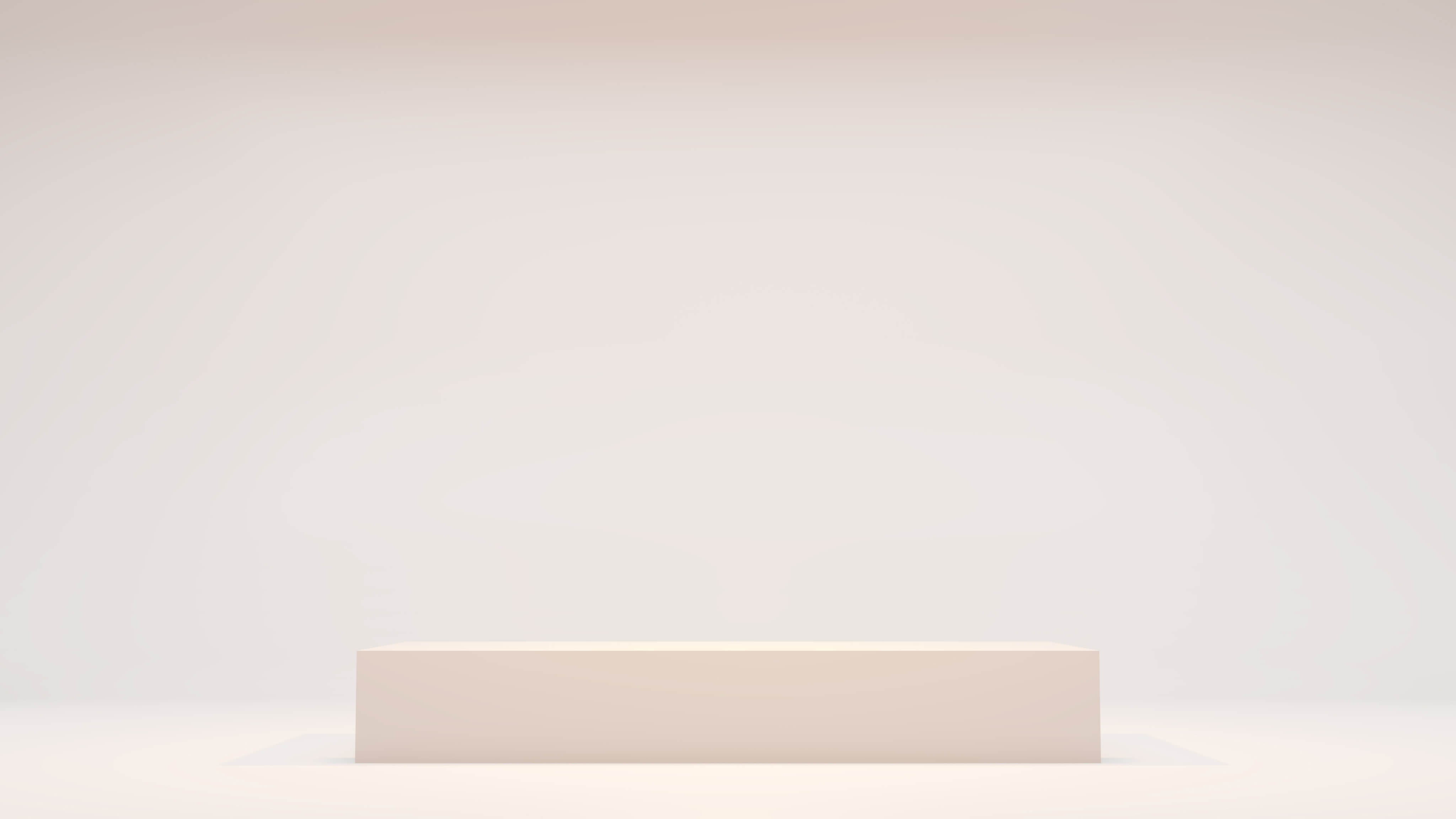
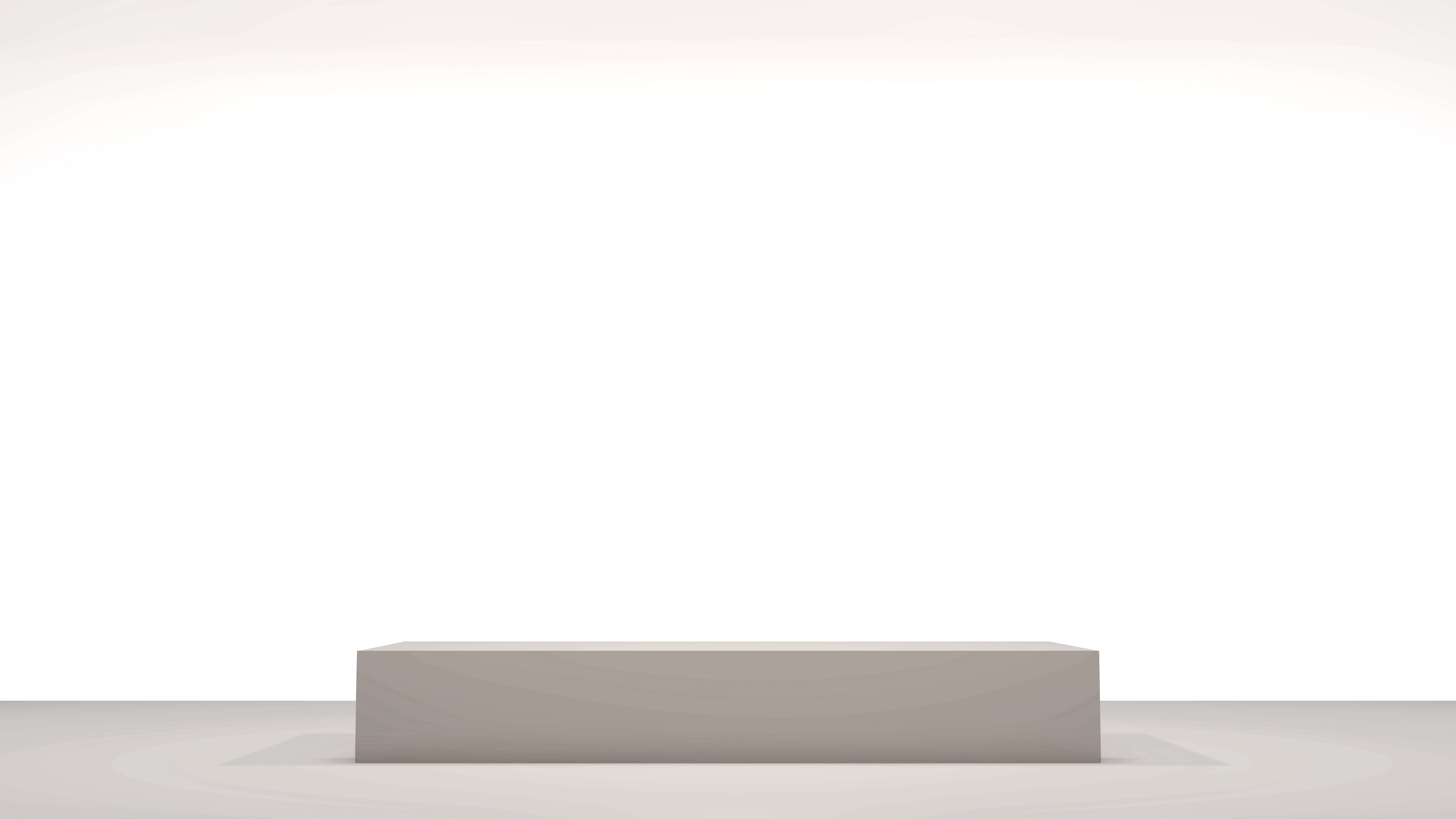
Submit an application
We will inform you about the availability of the product by phone after checking
